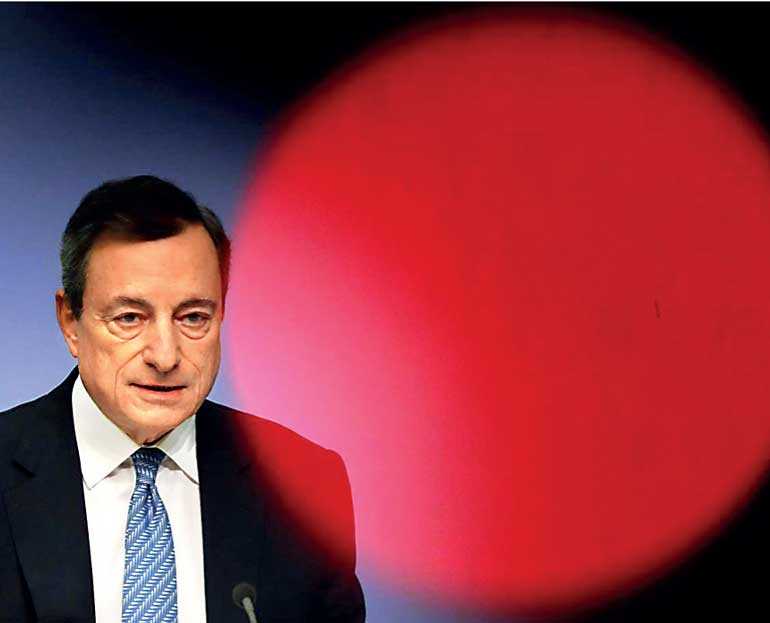Tuesday Feb 17, 2026
Tuesday Feb 17, 2026
Monday, 17 December 2018 00:00 - - {{hitsCtrl.values.hits}}

European Central Bank (ECB) President Mario Draghi speaks during a news conference at ECB headquarters in Frankfurt,- REUTERS
PISA, Italy (Reuters) - The spread of illiberal ideology is threatening the euro but it is an illusion that leaving it would offer an easier path, European Central Bank President Mario Draghi said on Saturday.
Warning that a half-finished monetary union could be at risk in the next crisis, Draghi made the case for sweeping changes in how the currency bloc operates and spreads around financial risk.
“The fascination with illiberal prescriptions and regimes is spreading; we are seeing little steps back in history,” Draghi said in Pisa, Italy.
“Only by continuing to make progress, freeing up individual energies but also fostering social equity, that we will save (the European Project) through our democracies, with a unity of purpose,” he added.
Anti-establishment and often populist parties have made political headway across the globe in recent years, challenging the principles of open trade, multilateral cooperation and even democracy.
Draghi, credited with saving the euro in the worst of Europe’s crisis, called for deeper private risk sharing, the completion of the banking and capital market unions and argued for euro-wide backstops that could help the bloc’s weaker members in case of market stress.
Large institutional reforms have essentially stalled in recent years, mostly due to resistance from Germany, which fears that its taxpayers could be asked to foot the bill for the fiscal irresponsibility and excesses of weaker euro members.
“Without appropriate backstops at the euro area level, individual countries in a monetary union can be exposed to self-fulfilling dynamics in sovereign debt markets,” Draghi said in a likely warning to Italy, which has seen sharply higher borrowing costs amid a spat with the EU over spending plans.
But Draghi also said that the euro today is not as rigid as some argue.
Even if it is too strong for some members and too weak for others, this misalignment has actually declined in recent years, he argued.
Currency devaluation would also offer few benefits because such a big devaluation would be needed to gain a real advantage, that it would threaten the existence of Europe’s single market and the welfare of the poorest members of society.